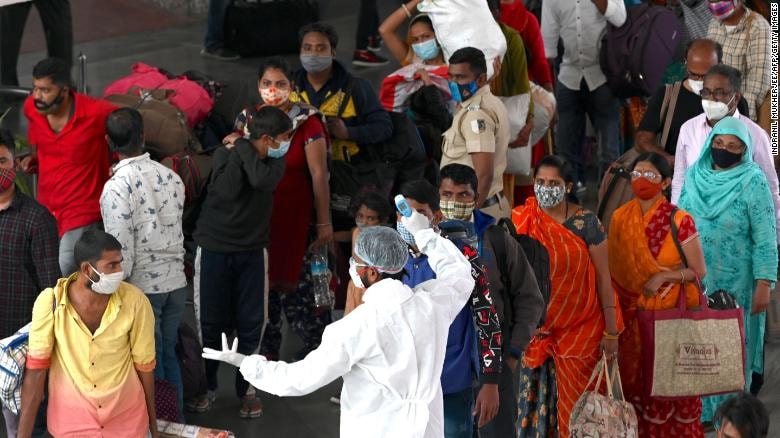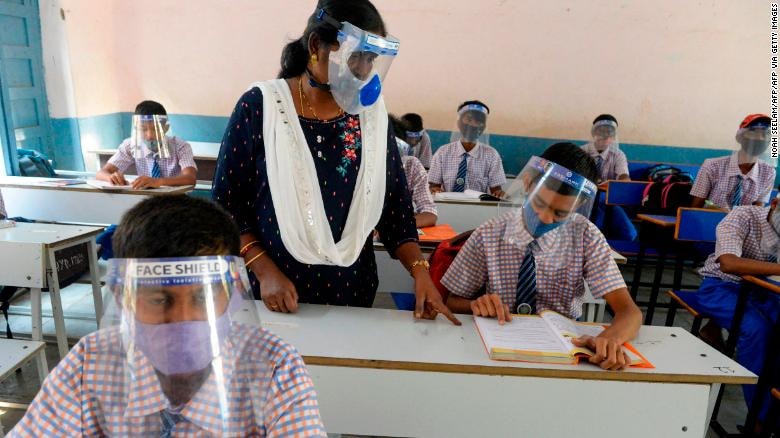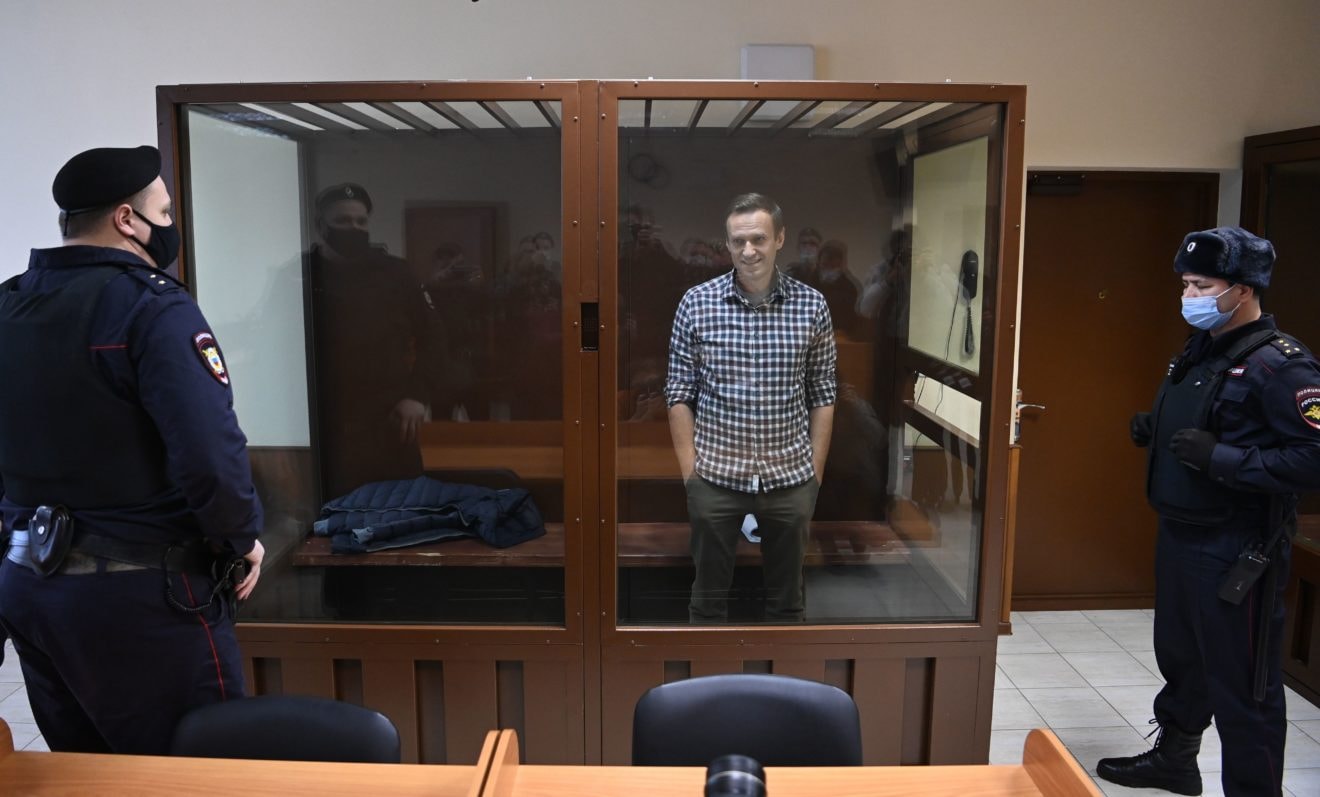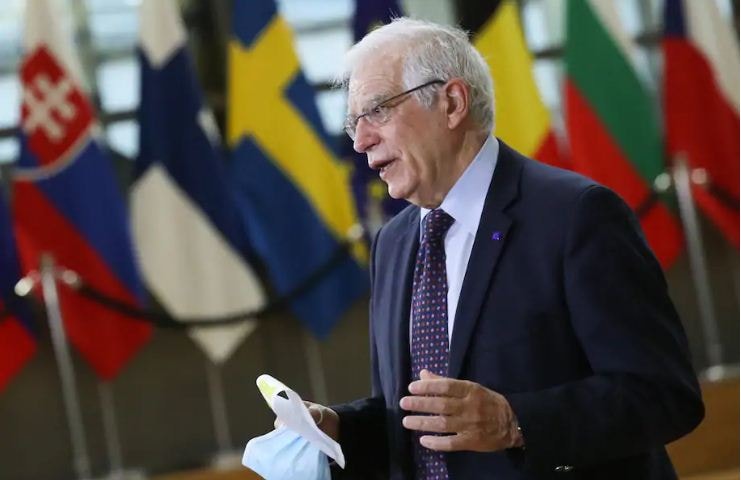The world this week: Be alert and respond to threats
(Baonghean.vn) - India is witnessing a surprisingly sharp decline in the number of new Covid-19 infections. The European Union (EU) foreign ministers meeting agreed to impose sanctions on top Russian officials, following the imprisonment of opposition figure Alexei Navalny. These are the contents that have received attention in the past week.
Amazing recovery
While 6 months ago, India was in a severe Covid-19 crisis, the number of new daily cases has now dropped sharply, from a peak of more than 90,000 infections in September 2020 to just over 10,000 cases a day. Notably, on February 9, after nearly 9 months, for the first time, the capital New Delhi reported no deaths from Covid-19. Surprisingly, these results were achieved without the need for drastic measures such as lockdowns, which have been applied in many countries to control the epidemic.
SoIndia's resilienceWhere does it come from? Analysts say it’s not vaccination. India has begun a vaccination program with a goal of vaccinating 300 million people by August 2021, but it’s still behind rich countries.
According to Oxford University’s Our World In Data, the country has so far administered just one dose of vaccine per 100 people. This is far below the 27 doses in the UK and 19 doses in the US. Experts therefore speculate that factors behind India’s sharp decline in new cases could be its high proportion of young people or the potential for increased immunity in urban areas.
 |
| Medical staff check the temperature of passengers arriving at Mumbai station, India. Photo: CNN |
Demographics, geography and living conditions may be contributing factors to the decline in new cases. A younger population means that most cases are asymptomatic or mild, go untested and go unreported, and the fatality rate is lower, according to Shahid Jameel, a virologist and director of the Trivedi School of Biosciences at Ashoka University. And Raman Gangakhedkar, a former scientist in the epidemiology and infectious diseases department at the ICMR, said geography also plays a role.
“It is important to note that about 70% of Indians live in rural areas, where there is better ventilation. People living in rural areas do not use public transport like buses or trains, the network is smaller. So there is less risk than the urban population.”
Experts also said that the reason for the decline in the number of cases in India could be the increase in the number of people developing antibodies against the virus.SARS-CoV-2 virus, because “a lot of people have been exposed to the virus and so they have developed immunity.” Scientists are still studying Covid-19 and human immunity to this disease. A US study published in the journal Science in February 2021 showed that after being infected with the virus and developing antibodies, “patients can be protected from reinfection for at least 8 months.”
India has reported more than 11 million cases and 156,000 deaths since the pandemic began, according to Johns Hopkins University. Nationwide serological surveys have shown a sharp increase in the number of people with antibodies to the virus in many parts of India.
The latest survey conducted by ICMR shows that the prevalence of antibodies to the virus is nearly 22% between December 2020 and January 2021, three times higher than the rate of 6-7% in August-September 2020. This is a huge increase, and major cities in India could see a significant decline in infection rates.
 |
| Students and teachers wear face shields to prevent Covid-19 in a classroom in India. Photo: CNN |
However, this does not mean that India is close to achieving herd immunity. Herd immunity is achieved when a sufficient number of people have contracted the disease and become immune to the virus, or have been vaccinated. So far, India’s 11 million cases represent less than 1% of its population of more than 1.4 billion.
The decline in Covid-19 cases is a welcome sign, but experts warn that India should not be complacent and should be more cautious. Experts also fear that the low number of reported cases could create a “false sense of security” before the crisis is fully over. Therefore, it is too early to ease restrictions and protective measures, especially given the threat posed by new variants of the SARS-CoV-2 virus that have been detected in many countries.
EU deeply divided
The EU's decision to sanction Russia was made quickly after a tense trip to Moscow byEU diplomat Josep Borrellearlier this month. The upshot of the sanctions: travel bans within Europe and asset freezes for a number of officials (four) linked to President Putin and the arrest, trial, and imprisonment of Alexei Navalny. The decision needs to be approved by the European Commission in early March, and is certain to be approved.
 |
| Opposition politician Alexei Navalny was jailed shortly after returning to Russia from Germany. Photo: AFP |
EU foreign policy chief Josep Borrell said Russia was “moving towards an authoritarian state and away from Europe”. The EU therefore needed to send a strong message to Russia. EU foreign ministers agreed to act in response to Russia’s lack of interest in cooperation with the EU. Instead, Russia “seems to be interested in confrontation”. This will be the first time the EU has used a new mechanism to facilitatesanctionsagainst human rights violations. This mechanism allows 27 member states to sanction those deemed responsible for human rights violations, through asset freezes and travel bans.
The EU's move comes after Borrell's visit to Moscow earlier this month, which was widely criticized and considered a failure. Accordingly, the EU diplomat failed to make any progress on the Navalny issue, and Russia even expelled diplomats from three EU countries, Germany, Poland and Sweden, for participating in an illegal protest against the government's arrest, trial and imprisonment of Alexei Navalny.
Euronews commented that the EU may want to save face after the disastrous trip of Josep Borrell. Despite many strong calls, especially from the European Parliament, for much tougher sanctions against Russia, the EU is deeply divided on this issue.
German Foreign Minister Heiko Maas said Berlin will reconsider thesanctionsagainst Russia, because Germany “must find a way to maintain dialogue with Moscow, which is needed to resolve many international conflicts”. Similarly, France and some major countries call for a more targeted, political approach, leaving aside economic measures. Meanwhile, Poland and some Baltic countries want “a big game” that includes economic sanctions, a halt to constructionNord Stream 2.
 |
| EU High Representative for Foreign Affairs and Security Policy Josep Borrell said that Russia is moving away from Europe. Photo: AFP |
The EU’s sanctions over the past decade have aimed to paint Russia as an undemocratic, human rights-violating country and a threat to the West, thereby pressuring, isolating and weakening Russia. However, making demands and pressuring the release of Alexei Navalny is interference in the internal affairs of a sovereign country. It seems that the EU is crossing a “red line”. Russia denies all accusations and reacts strongly because it cannot make concessions.
Earlier, Russian Foreign Minister Sergei Lavrov warned that Russia is ready to cut ties with the EU if it continues to impose sanctions on sectors that cause great damage to the economy, especially sensitive sectors. Russia does not want to isolate itself from the world, but Russia needs to be prepared for that. There is a saying that “if you want peace, you must prepare for war”.
